Key Concepts in Environmental Engineering
- Environmental Sustainability: Understand the principles of sustainability and how they apply to engineering practices. Learn about sustainable development and the importance of preserving natural resources.
- Air and Water Pollution: Study the sources and effects of air and water pollution, as well as the technologies used to control and mitigate these environmental issues.
- Waste Management: Explore the various methods of waste disposal, recycling, and treatment of hazardous materials. Understand the concept of sustainable waste management.
- Renewable Energy: Learn about alternative energy sources such as solar, wind, and hydroelectric power, and their role in reducing dependence on fossil fuels.
- Environmental Impact Assessment: Understand the process of evaluating the potential environmental effects of a proposed project or development.
- Environmental Regulations: Familiarize yourself with laws and regulations related to environmental protection and learn about the role of environmental engineers in compliance and enforcement.
Skills and Tools
- Technical Skills: Develop proficiency in using environmental modeling software, GIS (Geographic Information Systems), and other tools for analyzing environmental data.
- Problem-Solving: Hone your ability to identify, analyze, and solve environmental problems through engineering solutions.
- Communication: Practice effective communication skills for collaborating with multidisciplinary teams and conveying technical information to non-technical audiences.
- Regulatory Knowledge: Stay updated with environmental regulations and policies to ensure compliance in engineering projects.
- Sustainability Perspective: Embrace a holistic approach to engineering that considers the long-term impact on the environment and society.
◂Science Worksheets and Study Guides Seventh Grade. Cell Reproduction
Study Guide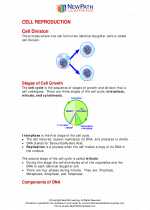 Cell Reproduction
Cell Reproduction  Activity Lesson
Activity Lesson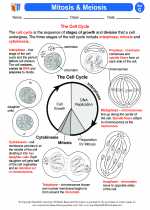 Mitosis & Meiosis
Mitosis & Meiosis  Worksheet/Answer key
Worksheet/Answer key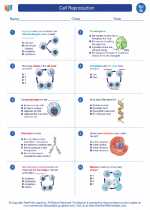 Cell Reproduction
Cell Reproduction  Worksheet/Answer key
Worksheet/Answer key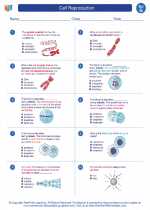 Cell Reproduction
Cell Reproduction  Worksheet/Answer key
Worksheet/Answer key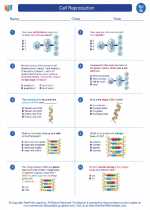 Cell Reproduction
Cell Reproduction  Vocabulary/Answer key
Vocabulary/Answer key Cell Reproduction
Cell Reproduction  Vocabulary/Answer key
Vocabulary/Answer key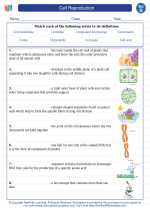 Cell Reproduction
Cell Reproduction  Vocabulary/Answer key
Vocabulary/Answer key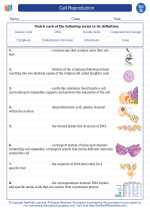 Cell Reproduction
Cell Reproduction  Vocabulary/Answer key
Vocabulary/Answer key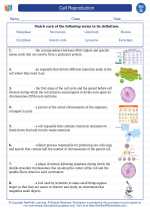 Cell Reproduction
Cell Reproduction  Vocabulary/Answer key
Vocabulary/Answer key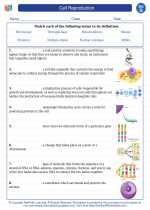 Cell Reproduction
Cell Reproduction  Vocabulary/Answer key
Vocabulary/Answer key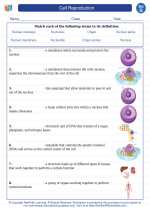 Cell Reproduction
Cell Reproduction  Vocabulary/Answer key
Vocabulary/Answer key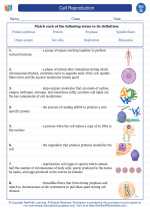 Cell Reproduction
Cell Reproduction  Vocabulary/Answer key
Vocabulary/Answer key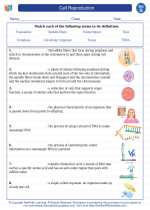 Cell Reproduction
Cell Reproduction 

 Activity Lesson
Activity Lesson
 Worksheet/Answer key
Worksheet/Answer key
 Worksheet/Answer key
Worksheet/Answer key
 Worksheet/Answer key
Worksheet/Answer key
 Vocabulary/Answer key
Vocabulary/Answer key
 Vocabulary/Answer key
Vocabulary/Answer key
 Vocabulary/Answer key
Vocabulary/Answer key
 Vocabulary/Answer key
Vocabulary/Answer key
 Vocabulary/Answer key
Vocabulary/Answer key
 Vocabulary/Answer key
Vocabulary/Answer key
 Vocabulary/Answer key
Vocabulary/Answer key
 Vocabulary/Answer key
Vocabulary/Answer key

The resources above cover the following skills:
LIFE SCIENCE
From Molecules to Organisms: Structures and Processes
Gather and synthesize information to explain how prokaryotic and eukaryotic cells differ in structure and function, including the methods of asexual and sexual reproduction.